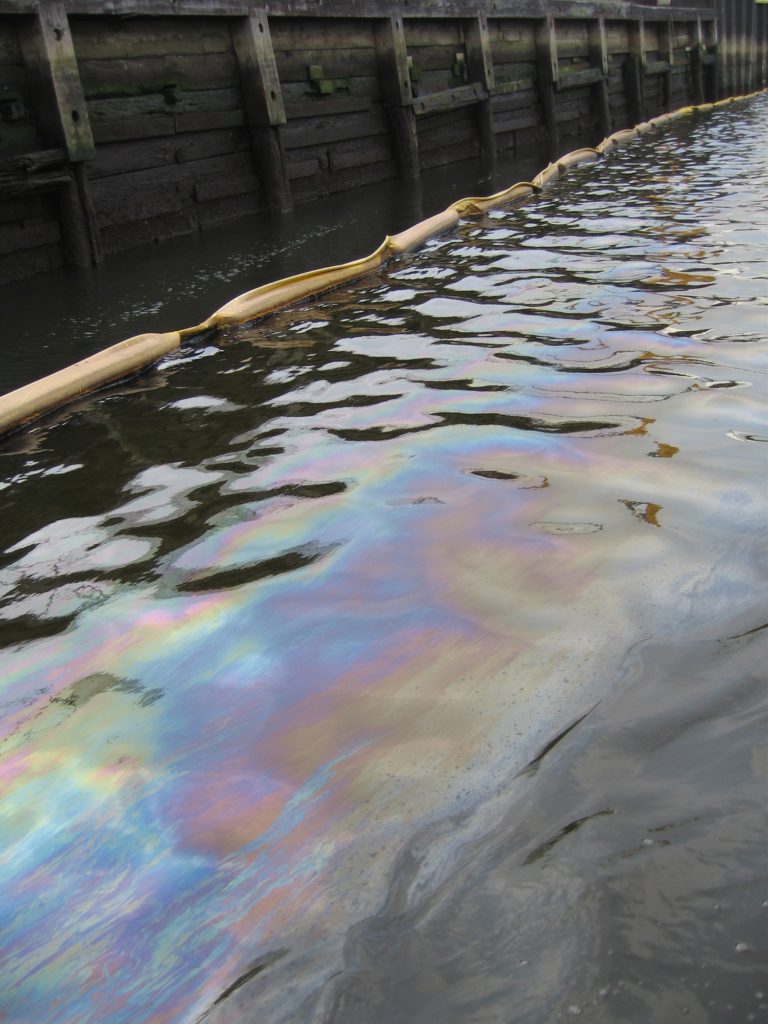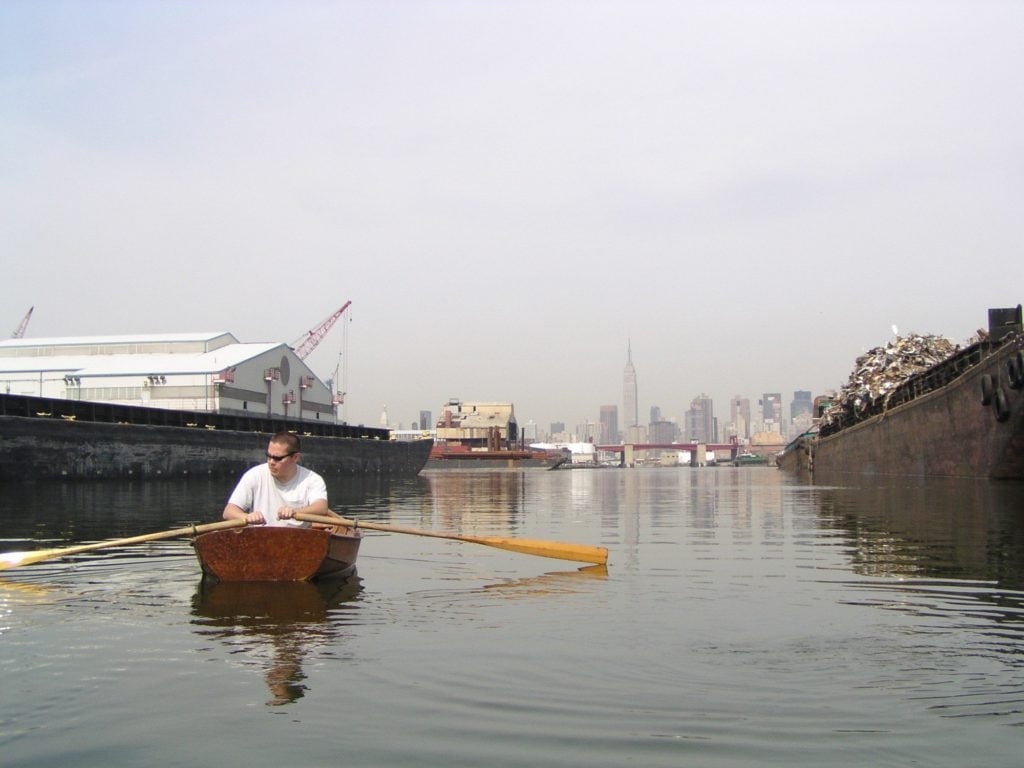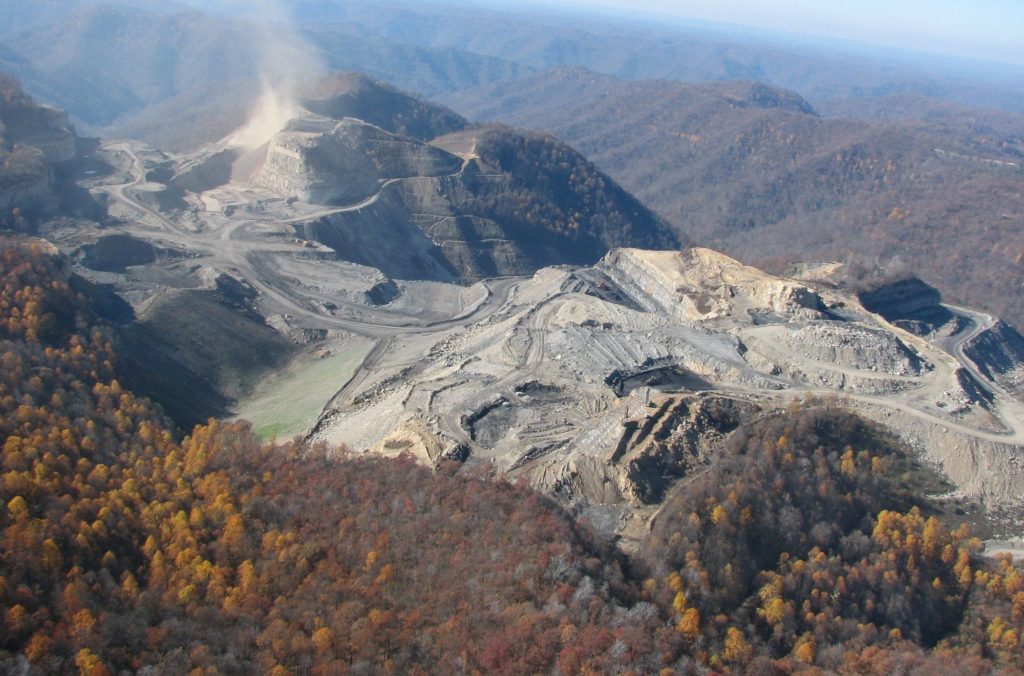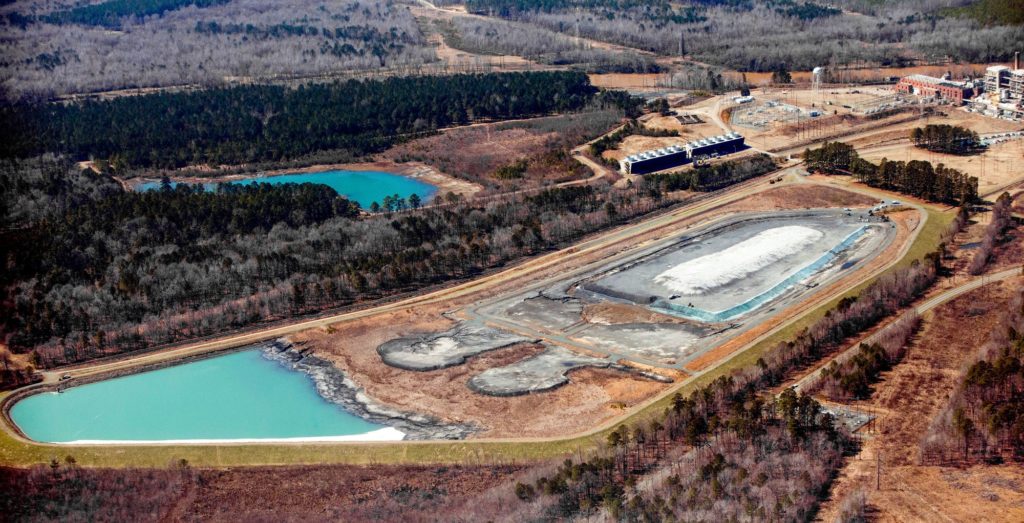Citizens at the Ramparts
By: Pete Harrison
By Pete Harrison, former Staff Attorney and U.S. Coal Campaign Coordinator at Waterkeeper Alliance, current Staff Attorney at Earthjustice
Landmark Environmental Laws That Empowered the People Are Under Siege.
Over the last 45 years, the Clean Water Act, the Clean Air Act and other federal environmental laws have dramatically reduced pollution and improved living conditions across America. Before we had these vital protections for our natural resources and our health, rivers were so polluted they erupted in flames, and cities disappeared in dense shrouds of lethal smog. But an outraged public finally demanded action from their government, and elected officials enacted a suite of innovative and ambitious federal statutes.
Today, however, a great many officeholders, fueled by campaign contributions from the biggest polluters on earth, have taken aim at the laws that we have to thank for our drinkable water and breathable air. An overtly anti-environmental faction within the federal government, seeking to exploit its party’s control of both houses of Congress and of the White House, have advanced a swell of radical proposals designed to eliminate many of the features that have made these safeguards so effective. Groveling for the support and affection of their dirty donors, some members of Congress have taken a particular interest in one especially important component of our environmental protection: the citizen-suit provision.
The effectiveness of our pollution laws, like all laws, depends on meaningful enforcement. Government agencies such as the federal EPA and its state counterparts bear the primary responsibility to implement these laws and ensure compliance with pollution limits. Often, though, these agencies fail to carry out those duties, because they are underfunded and understaffed, and because politically powerful polluters often wield extraordinary control over the agencies that are assigned to police them – a phenomenon known as “regulatory capture.”
In fact, Congress in the 1970s anticipated that a lack of government resources or political willpower could severely undermine enforcement of environmental laws, so it included innovative provisions authorizing private citizens to prosecute violations when government fails to do so. Whereas previous legal remedies were available only to individuals who suffered personal injury or property damage, the new statutes empowered any citizen to file suit to stop illegal pollution if his or her use and enjoyment of a waterway or other resource was being diminished by it. And, unlike plaintiffs in personal injury lawsuits, who typically seek monetary compensation for their injuries, citizen-suit plaintiffs seek to bring violators into compliance with the law and to clean up the pollution, benefitting not only themselves but also their neighbors and all society.
Since the Waterkeeper movement began 50 years ago in New York’s Hudson River Valley, it has used the power of the law to stop water pollution. A determined group of commercial and recreational fishermen that called themselves The Hudson River Fishermen’s Association, the precursor of Hudson Riverkeeper, the first Waterkeeper organization, met at an American Legion Hall to figure out how they could stop the rampant pollution that was destroying their river and its fishery. They devised a novel plan to use two little-known laws from the 19th century – the Rivers and Harbors Act of 1888 and the Refuse Act of 1899 – to take on the industries that were fouling the Hudson.

First they went after Penn Central Railroad, which for years had been dumping oil waste from a diesel yard out a three-foot pipe into the Croton River, which feeds into the Hudson in Westchester County, north of New York City. The discharge was so poisonous that it killed ducks and turned the river into a fire hazard. According to Robert F. Kennedy, Jr. and John Cronin in their book The Riverkeepers, the spewing pipe became “a symbol of government corruption and the triumph of corporate power over the public trust.” In 1968 the Association, individual fishermen and New York Congressman Dick Ottinger sued the railroad, prompting the U.S. Attorney to take up the case. The next year the coalition claimed its first victory, forcing Penn Central to end the discharge and to pay the Association a $2,000 bounty for initiating the prosecution. The fishermen soon brought other cases against the most powerful polluters on the river: Ciba Geigy, Standard Brands, American Cyanamid, and even the National Guard. Then, in 1972, Congress passed the Clean Water Act, with its citizen-suit provision offering a valuable new tool to protect America’s waterways. Following in the tradition begun by their predecessor on the Hudson, Waterkeeper Alliance and its member organizations have used citizen suits under that landmark law to bring hundreds of polluters into compliance. Of all the Clean Water Act citizen-enforcement actions initiated against polluters between 2005 and 2014, nearly a quarter involved Waterkeeper Alliance or its members. Here are just a few examples:
- In 2010, Waterkeeper Alliance, Kentucky Riverkeeper, and our partners made a stunning revelation that Kentucky’s state environmental officials had failed to notice: for years, the state’s three biggest mountaintop-removal coal-mining companies had been masking serious illegal water-pollution discharges by submitting phony water-quality data on official monitoring reports. We used the Clean Water Act’s citizen-suit provision to take the companies to court, and only after we exposed the tens of thousands of Clean Water Act violations did the embarrassed government regulators undertake enforcement action of their own. The involved companies were levied fines and other sanctions. And the scandal led to the passage of a state law that established performance standards for wastewater-laboratories.
- In 1992 Puget Soundkeeper brought its first Clean Water Act citizen suit against the City of Bremerton, Washington, which was discharging hundreds of millions of gallons of raw sewage into Puget Sound. Thanks to Soundkeeper’s action, Bremerton has now invested nearly $50 million of system upgrades and new infrastructure, reducing the frequency and volume of combined stormwater and raw-sewage discharges by more than 99 percent. As a direct result, shellfish beds in Dyes Inlet, which had been closed to commercial harvest since the 1960s, were reopened and today are being cultivated and harvested by the Suquamish Tribe.
- For decades Duke Energy stored toxic coal ash in huge leaking pits that contaminated groundwater and rivers at all of its coal power plants in North Carolina, while state regulators turned a blind eye. Beginning in 2010, Waterkeeper Alliance and the Catawba, Cape Fear, Yadkin, French Broad, and Waccamaw Riverkeepers banded together to expose the pollution and file citizen suits against Duke. The Waterkeepers’ work exposed a pattern of extremely lax enforcement by state regulators and led to a 2014 federal criminal probe into possible collusion between the governor (a Duke Energy stockholder and former employee) and the power utility. Not only did the suits spur enforcement actions by the state, but Duke Energy also has been required to remove all the coal ash from more than half the sites and provide clean drinking water to hundreds of families threatened by the contamination.
- In 2004, Hudson Riverkeeper filed a citizen suit against ExxonMobil to require it to clean up as much as 30 million gallons of oil that had leaked from a Brooklyn refinery over the course of a century, contaminating ground water in a 50-acre area around Newtown Creek. The suit led to a settlement requiring the company to undertake a massive remediation project and contribute nearly $20 million to projects aimed at reducing air-and-water pollution in the surrounding community.
In each of these cases, dangerous pollution would have carried on indefinitely had it not been for citizen enforcement. They demonstrate clearly how democratizing enforcement of our environmental laws provides an important backstop when government regulators fail to uphold the law, promotes fuller implementation of the law, and enhances important protections for our natural resources and our health. Other countries have taken note of these suits’ effectiveness as they develop their own environmental laws. The Chinese government, for example, recognizing that a lack of enforcement at the local level was contributing to a national environmental crisis, amended its Environmental Protection Law in 2014 to allow citizens to file enforcement actions “against acts that pollute the environment and . . . have the major risk of harming the social public interests.” Communities and public-interest groups across China have begun using their new authority to address terrible pollution problems that have plagued communities for many years without relief from government action.



New threats
In 1985, the U.S. Senate Committee on Environment and Public Works found that “citizen suits are a proven enforcement tool. They operate as Congress intended – to both spur and supplement . . . government enforcement actions. They have deterred violators and achieved significant compliance gains.” Nowadays, however, some legislators (many of whom receive large campaign contributions from corporate polluters) are singing a much different tune, seeking to dilute citizen-enforcement authority, or possibly eliminate it altogether. Because citizen suits have proven to be such an effective mechanism to stop illegal pollution, it is perhaps no wonder that lobbyists for the most powerful polluters in the country have taken aim at the laws that authorize these actions. These lobbyists hand-deliver their deep-pocketed clients’ wish lists to government officials, and bills seeking to quell citizen participation in environmental enforcement have begun to surface in Congress. For instance:
- H.R.1179, the so-called “Discouraging Frivolous Lawsuits Act,” a bill introduced by Rep. Tom Rice (R-SC), would actually discourage citizens from bringing non-frivolous Clean Water Act enforcement suits. In spite of what the title suggests, truly frivolous lawsuits are already discouraged by the threat of court sanctions and liability for the opposing side’s legal fees. H.R.1179 would create a new requirement for the citizen to pay the defendant’s attorney fees if the citizen did not ultimately prevail in court. Because there is always a risk that even the most airtight legal case could be thrown out on a technicality, well-intentioned plaintiffs would have to consider the possibility that their efforts to enforce the Clean Water Act could end up costing them millions if this bill becomes law.
Current laws already discourage frivolous citizen suits, because plaintiffs must pay the defendant’s attorney fees if a court determines their case is “frivolous, unreasonable, or without foundation.” Moreover, instances in which citizen suits have been found “frivolous” are exceedingly rare. Because plaintiffs do not stand to recover monetary damages, there is little incentive to pursue a frivolous citizen suit. - H.B. 848, introduced by Rep. Dan Newhouse (R-WA), would severely hamper citizens’ ability to sue factory-farms that contaminate groundwater with dangerous pathogens. The bill would amend the Resource Conservation and Recovery Act to prohibit a citizen suit against an agricultural operation that was illegally creating, in the words of the act, an “imminent and substantial endangerment” to human health or the environment, as long as state regulators had developed a “plan to achieve compliance” with the law. But such plans may be vague, open-ended and non-binding, particularly in the many states where “Big Ag” enjoys a cozy relationship with state regulators that have a record of lax enforcement – that is, the states where citizen suits are needed most.
Proponents of these efforts to erode democracy and public rights to participate in environmental protection often express a concern that citizen-suit provisions allow “runaway litigation” by environmental groups that clog the courts with frivolous lawsuits, harass law-abiding businesses, and interfere with government oversight. But these alleged fears have no basis in fact. To the contrary, citizen suits play a vital role in protecting lives and cleaning up pollution, and they pose no threat at all to businesses that obey pollution laws. Current environmental laws also ensure that citizen suits will not interfere with the proper functioning of government. The federal laws do not allow citizen suits in cases where the government is already “diligently prosecuting” the violations at issue. In fact, before filing a citizen suit against a polluter, the citizen must first notify the violator, the state and the EPA of its intent to file suit and then wait 60 days before actually filing in court. This period of delay is intended to give the polluter an opportunity to come into compliance or to give the government the opportunity to do its job. These limitations were carefully structured to ensure that citizen suits would “supplement, not supplant” government oversight.
U.S. environmental laws have profoundly improved the living conditions of every single American, saved countless lives, and have served as models for environmental regulation in countries around the world. Citizen-enforcement provisions have been a major part of this success. By democratizing enforcement, our government works more efficiently and effectively, and, as a result, we all benefit from cleaner air, land, and water. The continuing attempts by some of our elected officials to steal away this important right would, on the contrary, benefit a few empowered polluters, while leaving people and communities defenseless against their dangerous violations.